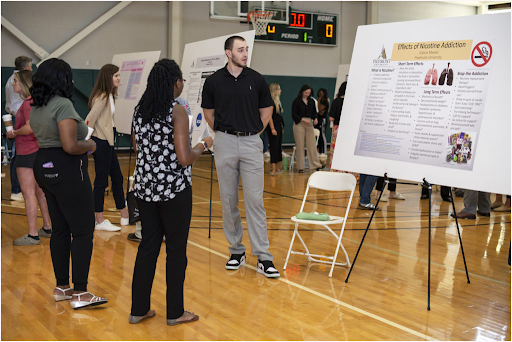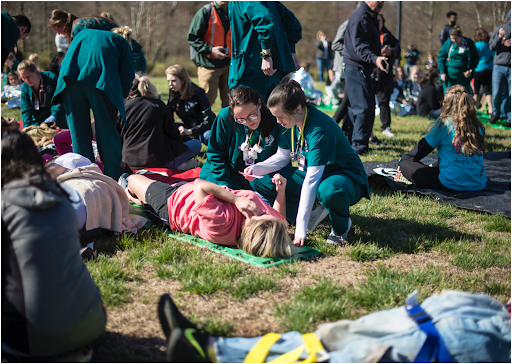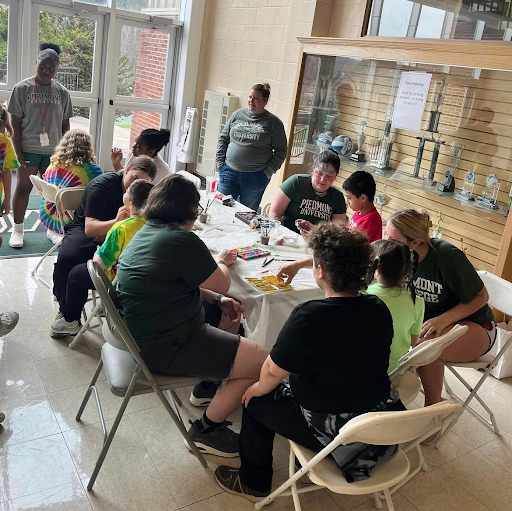By Manyi Eno
News Editor
Every student at Piedmont is provided with the opportunity to travel abroad. From China to France, the destinations are breathtaking. However, as fun and exciting as these trips may seem, how safe are students when they are no longer on American soil?
In an interview with both Associate Dean and Professor of English Stephanie Almagno and Vice President of Academic Affairs Perry Rettig, both faculty said that safety and security of students when they travel on study abroad and Maymester trips is paramount.
“That is the one thing I talked to administration about over and over again, safety and security,” Almagno said.
Almagno has been involved with administration on organizing study abroad and Maymester trips since 2011.
Before students are allowed to leave the country on these trips, they must show proof of health insurance.
Study abroad trips also provide the opportunity to travel overseas. These are trips that are one semester long, and students live on campus at either the University of Nottingham in England or at the University of Paderborn in Germany.
“Both [study abroad trips are] in cosmopolitan cities and have infirmaries on campus,” Almagno said. “Students have access to temporary health care, so its not like they are going to a remote area. They live in a dorm as they would here at Piedmont.”
Maymester trips, on the other hand, are quite different in that they are Piedmont sponsored trips and are not affiliated with any other college or university out of the country. For Maymester trips, students may not have the same health care options as study abroad students would.
“We do ask students to divulge any medical concerns they have, and that is divulged only to the trip adviser and is not shared with other members of the trip,” Almagno said.
Almagno explained that during one trip, administration encountered a student who had a severe fish allergy; she carried an Epipen with her for the trip.
“I made the trip coordinator go to the dean of the school of nursing to learn how to use Epipens in case something happened. I wanted to make sure we knew how to administer the medication. If a student has a medical issue he or she knows about, we suggest three or four days more medication. Its better to over prepare for a possible scenario, than to be caught blindsided,” said Almagno.
Rettig explained that Alagno gathers all of the necessary medical information about students who are traveling on the abroad trips to insure the best care for the students.
Also to insure safety for students on Maymesters, two faculty members are required to accompany the students.
“If something happens to a student, one faculty member can care for the student who is in crisis, and the other faculty member has responsibility for the group,” Almagno said.
It is also enforced that at least one of the faculty members on a Maymester trip speaks the language of the country they and the students are traveling to. If neither faculty member speaks the language, then they are required to have an interpreter with them at all times for the duration of the trip.
When it comes to creating and setting regulations for study abroad and Maymesters, Rettig oversees the trips.
He used to oversee the abroad trips at the University of Wisconsin-Oshkosh from 2001 until 2010.
“At Oshkosh, it is a state institution, and there we followed the University of Wisconsin state guidelines,” he said.
The guidelines that Rettig mentions can be found on the University of Wisconsin System (UW) website.
According to the Conduct of International Programs in the UW System Safety and Welfare of Participants, “A program will also advise participants on essential health and safety considerations, including the Center for Disease Control Travel Information: Health Recommendations.”
The document also goes on say that, “Every program must have in place an emergency response plan,” and “Program sponsors cannot guarantee or assure the safety of participants or eliminate all risks from the study abroad environments.”
However, in Piedmont’s Student Handbook, there are no specific guidelines that the school abides by for travel abroad trips because the rules do not change when a student is out of the country on a Piedmont sponsored trip.
Almagno explained that Maymester trips are co-curricular with Piedmont, meaning that they abide by the same rules the college has in place.
“If there is no smoking or no drinking [on campus], then the same thing goes for a Maymester,” Almagno said.
“The level of academic rigor has to be the same, policies and procedures are the same, so we don’t see this as a free for all. This is not vacation time it’s academic work time. Everything that is in the Student Handbook, students must abide by.”
“We get U.S. State Department notices and updates that alert us what countries to be careful in,” Rettig said. “We don’t send any of our staff or students to a country that has any state department alerts. That’s definitely our protocol.”
Almagno said, “There is nothing mandated by the state that Piedmont has to follow, these are Piedmont trips.”
“We have some very good programs and I’d like to have more,” said Rettig. “When you ask students at the end of their career at Piedmont or any school, what was the number one experience you had here? Invariably it would be study abroad or Maymester experiences. We know how transformational these kinds of experiences can be, so we have to provide more opportunities. Not only opportunities for more trips to other places, but more students getting there. Thankfully we have a lot of great faculty that want to offer those programs.”
















